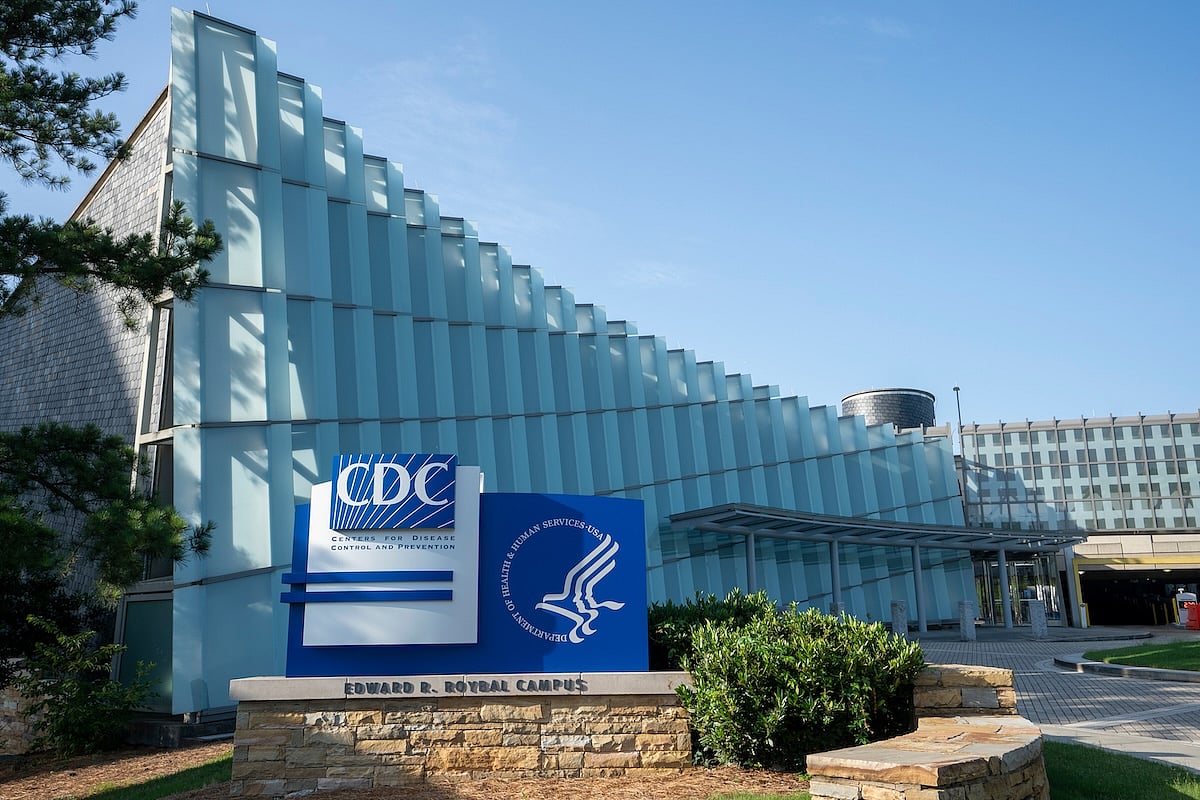Get Healthy!
Staying informed is also a great way to stay healthy. Keep up-to-date with all the latest health news here.
17 Feb
1 in 4 Teens Sending Sexts — Many Face Blackmail, New Study Warns
A new survey of nearly 3,500 teens finds a surge in sexting since 2019 and an increase in sextortion or blackmail.
16 Feb
Intermittent Fasting Falls Short for Weight Loss, Major Review Finds
A large, new evidence review finds intermittent fasting may not help overweight or obese patients loose a significant amount of weight or improve their quality of life.
13 Feb
GLP-1 Weight-Loss Drugs Tied to Increased Risk of Hair Loss
A large, new study finds adults who use GLP-1 medications face higher odds of a common form of hair shedding, as well as male or female pattern baldness.
Couples Who Do This One Thing Feel More Satisfied And Secure Together
Couples who take time to slow down and enjoy the good moments they share may feel closer, argue less and feel more confident their relationship will last, a new study suggests.
Researchers at the University of Illinois Urbana-Champaign found that couples who regularly pause to appreciate positive experiences together — a habit dubbed...
- I. Edwards HealthDay Reporter
- |
- February 17, 2026
- |
- Full Page
FDA Expands Tater Tot Recall Tied to Possible Plastic Contamination
A recall of frozen tater tots has expanded after federal officials warned that hundreds of thousands of pounds could contain pieces of plastic.
The U.S. Food and Drug Administration (FDA) said the expanded recall now covers about 648,000 pounds of frozen tater tots made by McCain Foods at a facility in Idaho.
The recall began last mo...
- I. Edwards HealthDay Reporter
- |
- February 17, 2026
- |
- Full Page
A Florida College Has Reported More Than 40 Measles Cases
A measles outbreak at a private college in southwest Florida is raising new concerns about how quickly the virus can spread.
More than 40 cases have been reported at Ave Maria University, making it one of the largest measles outbreaks recorded on a U.S. college campus.
Experts say the situation shows how measles, once mostly seen in ...
- I. Edwards HealthDay Reporter
- |
- February 17, 2026
- |
- Full Page
Baby Food Recalled Nationwide Over Mold Toxin Concern
A baby food product sold across most of the United States is being pulled from store shelves after tests found higher-than-expected levels of a toxin linked to mold, federal officials said.
Initiative Foods is recalling one lot of its Tippy Toes Apple Pear Banana fruit puree after the U.S. Food and Drug Administration (FDA) found elevated ...
- I. Edwards HealthDay Reporter
- |
- February 17, 2026
- |
- Full Page
Abortion Restrictions Increase Deaths Among Expecting And New Moms, Researchers Report
Anti-abortion laws are associated with more deaths among expecting and new mothers, a new study says.
Increased numbers of state-level abortion restrictions in the U.S. are linked to a parallel increase in maternal deaths between 2005 and 2023, according to findings presented at a meeting of the Society for Maternal-Fetal Medicine in Las V...
- Dennis Thompson HealthDay Reporter
- |
- February 17, 2026
- |
- Full Page
Most Skip Physical Therapy Homework, Slowing Their Recovery
Most people are skipping some or all their physical therapy homework, potentially stalling or even setting back their recovery, a new survey has found.
More than 3 of 4 patients (76%) assigned physical therapy exercises to perform at home don’t stick with it, according to the survey from the Ohio State University Wexner Medical Cente...
- Dennis Thompson HealthDay Reporter
- |
- February 17, 2026
- |
- Full Page
Smartphone App Successfully Supports First-Time Moms
First-time moms are facing a potentially overwhelming amount of stress, caring for their new baby while also managing their own recovery from pregnancy and birth.
But a new smartphone app can provide them much-needed support, according to a study presented at a meeting in Las Vegas of the Society for Maternal-Fetal Medicine.
First-ti...
- Dennis Thompson HealthDay Reporter
- |
- February 17, 2026
- |
- Full Page
Vegetarian Upbringing Not More Likely To Stunt Toddlers' Growth, Study Finds
Babies’ growth isn’t more likely to be stunted if they’re raised on a vegetarian diet, a new study says.
Tracking nearly 1.2 million infants, researchers found that by age 2 those raised in vegan and vegetarian households follow growth trajectories nearly identical to their omnivorous peers, according to findings publishe...
- Dennis Thompson HealthDay Reporter
- |
- February 17, 2026
- |
- Full Page
Brain Implant Can Read Movement Of Parkinson's Patients, Opening Door To More Effective Treatment
A new advance might help doctors improve movement in people with Parkinson’s disease by tracking their gait-related brain waves in real time.
An experimental brain implant can capture the signals of movement-related brain regions while Parkinson’s patients perform daily activities like walking to the kitchen or strolling throug...
- Dennis Thompson HealthDay Reporter
- |
- February 17, 2026
- |
- Full Page
Teen Sexting Has Surged In U.S.
Teen “sexting” has surged in the U.S., leaving countless teenagers vulnerable to harassment, exploitation and extortion, a new study says.
Nearly 1 in 3 teens (32%) have received a sext, and almost 1 in 4 (24%) has sent one, researchers reported in the Journal of Adolescent Health.
That’s up from 2019, when...
- Dennis Thompson HealthDay Reporter
- |
- February 17, 2026
- |
- Full Page
Love Sweet Iced Coffee? Thailand Wants You To Drink It With Less Sugar
Thailand is taking aim at sugary drinks as health officials warn that too much sugar is fueling rising rates of obesity and diabetes.
Earlier this week, nine major coffee chains across the Southeast Asian country agreed to cut the default sugar content in some of their drinks by half, as part of a new government-backed effort to curb exces...
- I. Edwards HealthDay Reporter
- |
- February 16, 2026
- |
- Full Page
Scientists Find Compound That May Speed Jet Lag Recovery
A team of scientists in Japan has discovered a compound that may help reset the body’s internal clock, a finding that could lead to better treatments for jet lag and sleep problems tied to shift work.
The compound, called Mic-628, acts directly on the body’s circadian rhythm, the internal system that controls sleep, wakefulness...
- I. Edwards HealthDay Reporter
- |
- February 16, 2026
- |
- Full Page
Why Chemo Causes Unwanted Side Effects And How To Treat Them
Chemotherapy is one of the most common weapons in the cancer-treatment arsenal, but its side effects are well known.
Hair loss. Nausea and vomiting. Mouth sores. Fatigue.
The side effects a person with cancer may have are affected by the type of cancer being treated and the chemotherapy drug being used. But a Boston-based cancer spec...
- Carole Tanzer Miller HealthDay Reporter
- |
- February 15, 2026
- |
- Full Page
How to Nurture A Healthy Relationship 365 Days a Year
The focus on Valentine’s Day is, as The Beatles famously crooned, "love is all you need."
But staying in love and growing together requires work and commitment.
"There are also some characteristics that most healthy relationships have in common," writes a team led by Lawrence Robinson of HelpGuide.org, a nonprofi...
- Carole Tanzer Miller HealthDay Reporter
- |
- February 14, 2026
- |
- Full Page
Top HHS Officials Out as White House Shores up Midterm Election Strategy
FRIDAY, Feb. 13, 2025 (HealthDay News) — U.S. Health Secretary Robert F. Kennedy Jr.’s second-in-command is apparently on his way out as part of a restructuring ahead of midterm elections, CNN reported.
Deputy Secretary Jim O’Neill is expected to leave soon, after struggling to find his fit within the depar...
- Carole Tanzer Miller HealthDay Reporter
- |
- February 13, 2026
- |
- Full Page
Thousands of NYC Nurses Return To Work, but One Major Strike Goes On
A monthlong nurses strike in New York City is coming to an end, but not for everyone.
Nurses at Montefiore and Mount Sinai hospitals voted to approve new three-year contracts, clearing the way for about 10,500 nurses to return to work in the coming days.
But nurses at NewYork-Presbyterian? They rejected their proposed deal, mea...
- I. Edwards HealthDay Reporter
- |
- February 13, 2026
- |
- Full Page
States Sue To Block $600 Million Cut to Public Health Funds
Four states are suing to stop the Trump administration from rescinding hundreds of millions of dollars already set aside for public health programs.
California, Colorado, Illinois and Minnesota filed suit Wednesday after the U.S. Department of Health and Human Services (HHS) said it planned to cut about $600 million in funding to those Dem...
- I. Edwards HealthDay Reporter
- |
- February 13, 2026
- |
- Full Page
Trump Scuttles Key Climate Finding Used to Control Greenhouse Gases
President Donald Trump is undoing a long-standing scientific finding that says climate change threatens human health and the environment.
The move strips the federal government of much of its power to limit greenhouse gas pollution.
The decision targets the Environmental Protection Agency's (EPA) "endangerment finding," a 2009 findin...
- I. Edwards HealthDay Reporter
- |
- February 13, 2026
- |
- Full Page
Swap TV For Activity To Ward Off Depression, Study Suggests
Want an easy way to head off the blues?
Stash the TV remote.
Dutch researchers who followed more than 65,000 adults for four years found that replacing 60 minutes of TV with something more active cut depression risk by 11% — and nearly 19% in middle-aged adults.
And more is even better.
"For 90- and 120-minute reall...
- Carole Tanzer Miller HealthDay Reporter
- |
- February 13, 2026
- |
- Full Page
One Simple Step Can Reduce Risk Of Preeclampsia, Study Says
Doctors could reduce rates of a dangerous high blood pressure condition in pregnancy by taking one simple step, a new study says.
Prescribing daily aspirin to all pregnant women at their first prenatal visit was associated with an overall reduction in cases of severe preeclampsia, according to findings presented at a meeting of the Society...
- Dennis Thompson HealthDay Reporter
- |
- February 13, 2026
- |
- Full Page


























